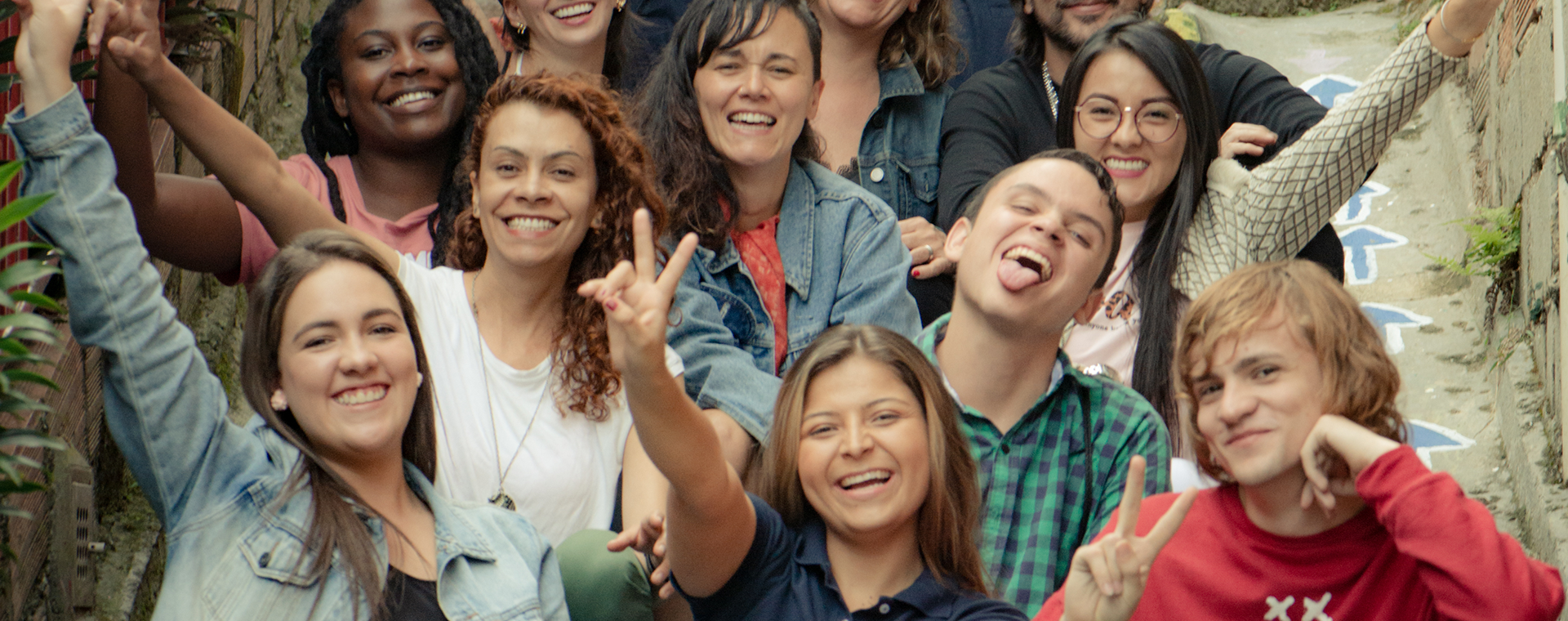
Step 1: Human Transformation
Socio-emotional skills
The ability to come together for a higher purpose is closely linked to the development of the so-called “soft skills”, such as self-knowledge, empathy, conflict, problem-solving and, critical and creative thinking, and leadership, among others. There is a growing global consensus on the importance of developing these skills. Renowned thinkers of education such as Andreas Schleicher, who leads the PISA Test Program at the OECD, suggests that science and mathematics could become the “soft skills” in the future, as these skills tend to be needed less and less in relation to technological advances and developments. The “hard skills” will then be curiosity, leadership, persistence, and resilience – skills that technology will not be able to provide. In Colombia, these socio-emotional skills are doubly important, because, as studies by the Inter-American Development Bank and the World Health Organization show, they contribute significantly to the prevention of risks and violence that youth face daily.
Validated methodologies
There are various high-impact methodologies in Colombia and in the rest of the world that have been evaluated and developed to achieve the large-scale transformation of socio-emotional skills. At Mi Sangre we are convinced that peace begins with each individual. We developed the Pazalobien Explorers methodology, which seeks to train curious citizens willing to build a peaceful world through the development of life skills in boys and girls between the ages of 5 and 14 years. This methodology systematically implements our experience through a varied and flexible curriculum that gives teachers or facilitators the necessary guidelines to strengthen citizenship in education processes. Participants engage in daily reflections that lead them to investigate their affinities, emotions, and interests. Thus, it encourages them to foster relationships with others based on trust, respect towards differences, and assertive communication. These reflections take place in situations in which they constantly reflect on life and its surroundings.
Meaningful contexts for learning
Learning and developing socio-emotional skills require a meaningful context in which children and young people act creatively and playfully. There are various routes to achieve this objective, such as sports, nature-based education, art and leisure, and new technologies. In our case, for this dimension of individual transformation, we have given priority to art as the fundamental basis of the pedagogical process, because we believe that, through art, people extend their capacities, reach distant places, find new paths, and forge tools to improve themselves. The methodology does not require teachers to be artists nor does it aspire to train artists. We understand art as a pedagogical language that helps us identify what is essential for each one of us. It allows us to expand our way of seeing the world and transforms the concepts we hold of each other and our different environments. Art connects us with the world through our senses, allows us to understand what others feel and takes us away from indifference, making us look at what we know with new eyes.
When a teacher changes, the classroom changes
Working hand in hand with teachers is essential to achieve systemic transformations that last over time. In our methodological model, we invite teachers to join voluntarily, and this autonomous decision makes all the difference. To date, we have trained more than 3,000 teachers in 150 rural and urban educational institutions, who experience a training process outside the school context and in which they become children again. The teachers go through the practical methodology as if they are the students and learn the pedagogical foundations of PAZalobien: accessibility, flexibility, the importance of asking questions, the socio-affective approach, and learning through experience.
In this process, they develop a classroom project and receive individual support for a year after the training. And while all of this is highly relevant, we have learned that the most important thing is to reconnect teachers with their higher purpose, reignite their role as teachers, and offer care tools for their mental health. According to our experience with teachers, supported by authors who advocate for inner growth as an essential part of systemic change: when a teacher is transformed, the classroom is transformed.
“Before Fundación Mi Sangre I was a lemon, and now I’m honey.” Teacher, Pazalobien Explorers.
In part 3 of this series, we look at community transformation as the key to education for peace.
The content of this article was translated and adapted from “Reimaginando a Colombia: Visiones del País que Podemos Construir“, published in 2019 by Editorial Planeta y and edited by McKinsey & Company.


